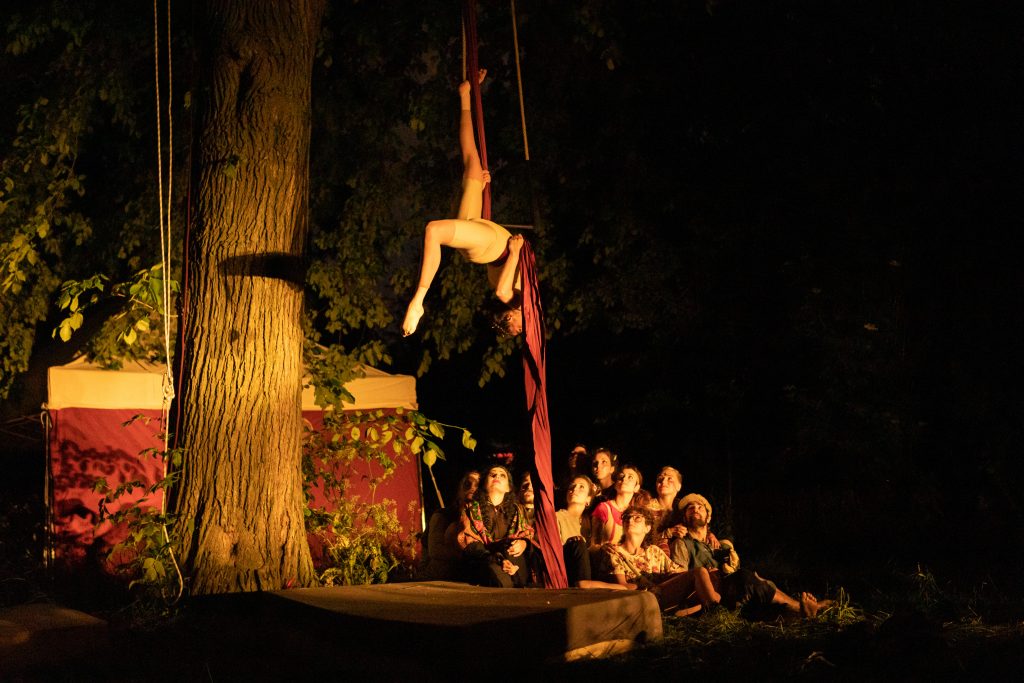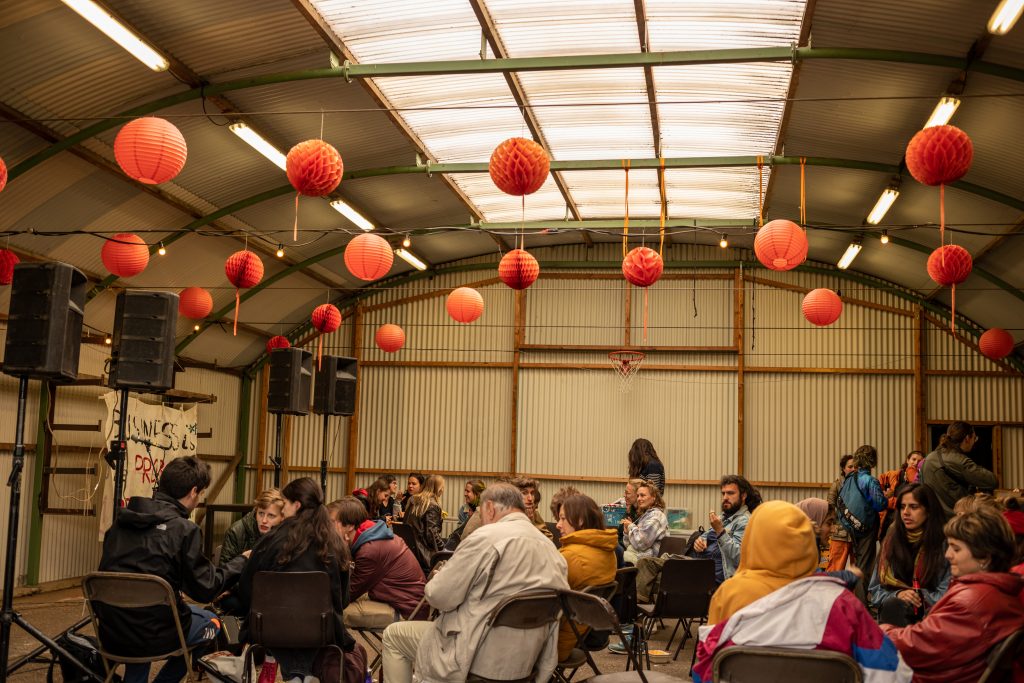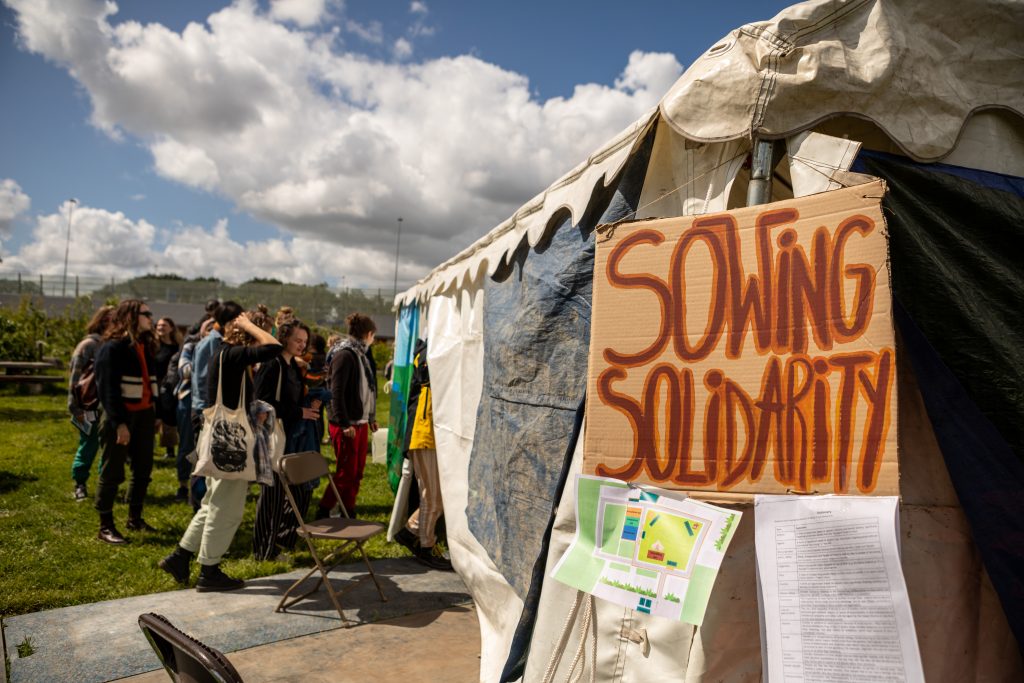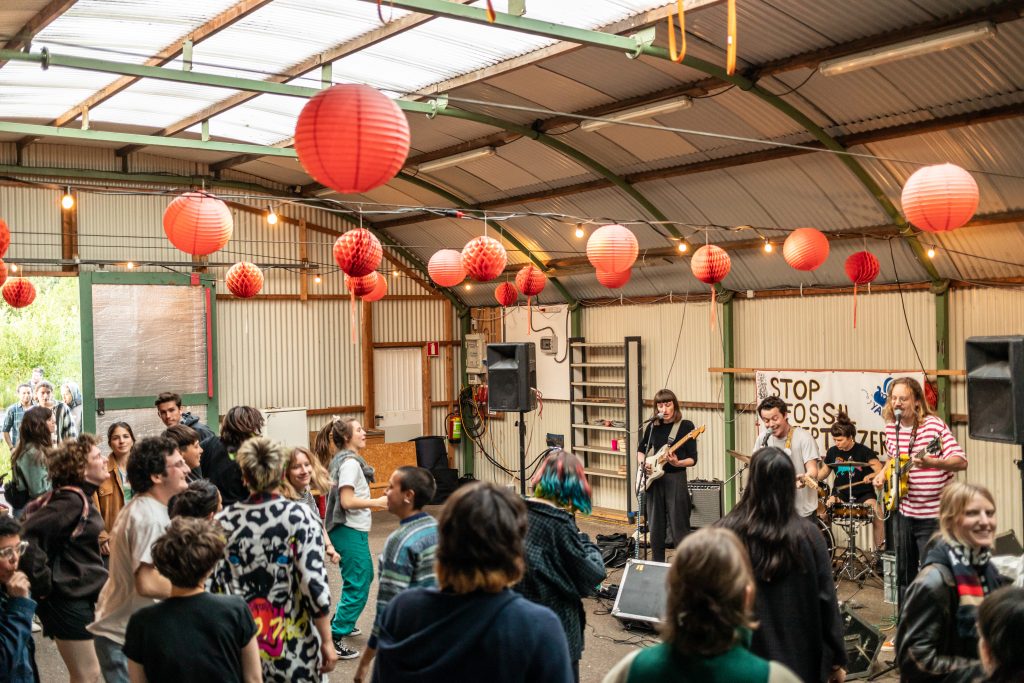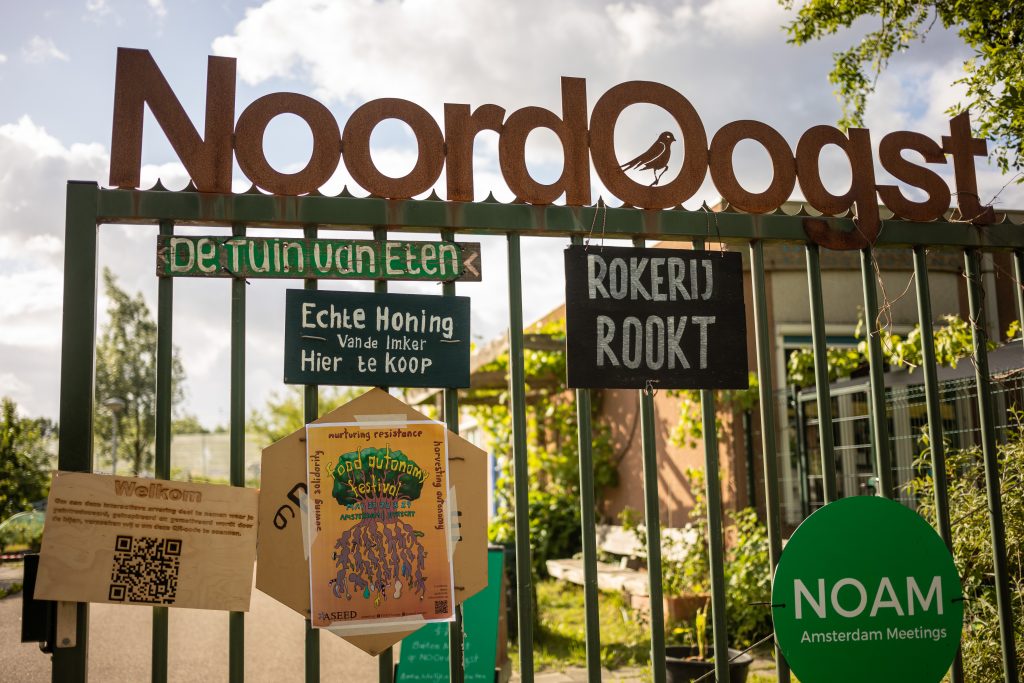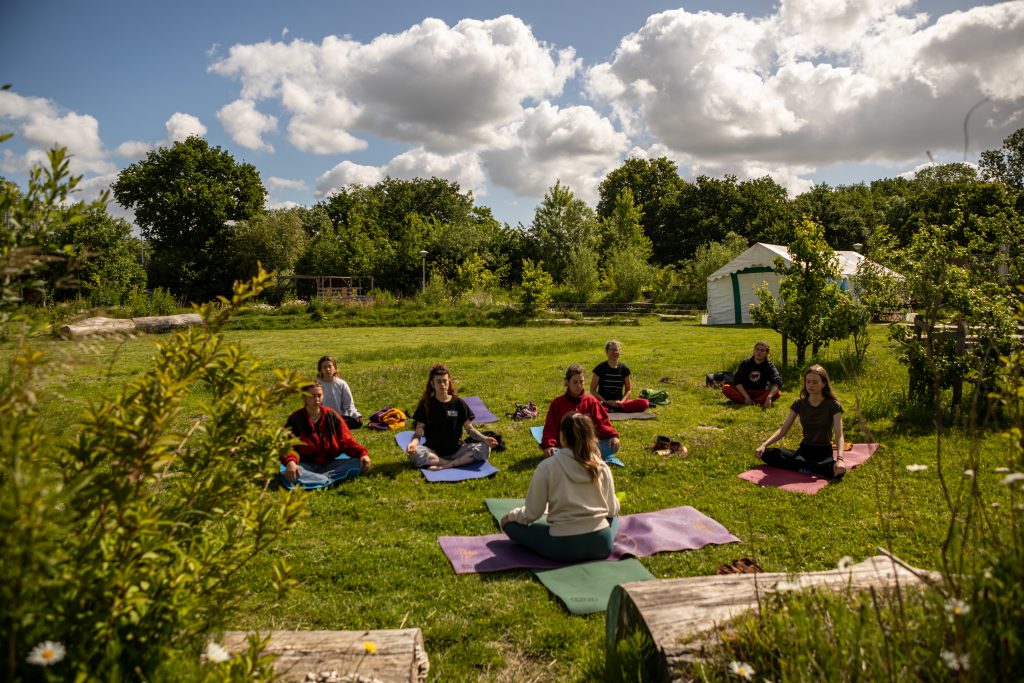Revisiting experiences
With the FAF behind us, we want to take you along with us – reflecting on some of the experiences we shared during the last weekend of May. The days were filled with good food, company, music, workshops, stands and much more. We shared moments of laughter and joy, learned about topics ranging from the intersections between disability justice and food justice to how to plant leek in between potato plants.
Looking back, the weekend was wonderful: on Friday, there was a farming day at De Lutkemeerpolder. People worked the land the whole morning and afternoon and they shared a lunch in the orchard, connecting and sharing food. At the end of the day, we crossed the city and went all the way to Noordoogst where the rest of the program would take place. There, we shared dinner, listened to musicians and saw a DIY circus performed in a beautiful tree.
On Saturday, workshops took place all day and there were different activities around the terrain. Whether it was learning how to climb trees, attending a talk, or doing morning yoga – there was an activity for everybody, making the festival a space to make connections, to learn, to share and to listen. We tried to broaden as much as possible these connections, by inviting for instance panelists from other parts of the world. In the evening, a queer poetry session gathered everyone together, followed by an acoustic performance which concluded the day.
Sunday was a cold, rainy day, resulting in a more calm vibe. Some workshops were still given, and as the day progressed the sun peeped from behind the clouds, allowing the butterfly tour to continue and people to have lunch outside. The program was brought to an end by a final talk in the afternoon around the subject of ‘intersectionality as a framework for radical transformation in our food system’, which fully encapsulates one of the major problematics that the festival aims to bring to light. The day was ended organizing the space, and the organizers went home; tired but content and proud of the way things turned out.
Lessons learned
Of course we look back at the festival, and its organizing, knowing that we can learn from some of the challenges that occurred. In the future, we consider making the festival shorter, simply so the ones organizing can also breathe and enjoy the moment. We also learned that making the FAF about more than food autonomy allowed for a space of larger discussions.
We invited artists, performers and disability activists, all of whom know about autonomy from varying perspectives, allowing us to learn from them while realizing that our work overlaps in many ways.
The lessons learned will allow us to imagine next year’s festival as a place where we can connect with those who resist the capitalist, hierarchical systems that create a socially and ecologically just world.
Looking forward
We hope to keep bringing people together to learn from each other. By putting food at the center of social, economic, political and climatic issues, we want to keep connecting with initiatives, grassroots movements and local resistance. The FAF is a place where we can connect with each other in our struggles in the fight for a sustainable and just food system.
We believe that getting together to talk about Food Autonomy allows for conversations about autonomy in many ways, how to achieve this and which oppressive systems need to be destroyed on the way there. That is, food autonomy can only be achieved if the climate crisis is fought, the patriarchy is smashed, ableism deconstructed, capitalism is destroyed, colonialism demolished… and so on. This is why we want the FAF to continue being a place where we fight for agricultural justice, climate justice, food autonomy and overall systemic justice. In doing so, strive in both our perspectives and practices, to challenge racism, sexism, coloniality, and oppression in all its forms.
Overall, we hope that future Food Autonomy Festivals will continue to provide a space for people to come together and learn about (food) autonomy in all its shapes and sizes.
